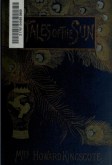The Brâhmaṇ’s Wife and the Mungoose
Indian folktale
Third Part.
At the end of the third watch of the night, Bodhavyapaka, the Third Minister of king Alakesa, went to see whether the royal bedchamber was properly guarded, and the king, summoning him to his presence, told him of the First Minister’s crime, upon which Bodhavyapaka, after making due obeisance, thus spake:—
“Most noble king, such a grave crime should be severely punished, but it behoves us not to act before having ascertained that he is guilty beyond doubt, for evil are the consequences of precipitation, in proof of which I know a story which I will relate, with your Majesty’s leave.”
Story of the Brâhmaṇ’s Wife and the Mungoose.
On the banks of the Ganges, which also flows by the most holy city of Banaras, there is a town named Mithila, where dwelt a very poor Brâhmaṇ called Vidyadhara. He had no children, and to compensate for this want, he and his wife tenderly nourished in their house a mungoose—a species of weasel. It was their all in all—their younger son, their elder daughter—their elder son, their younger daughter, so fondly did they regard that little creature. The god Visvesvara and his spouse Visalakshi observed this, and had pity for the unhappy pair; so by their divine power they blessed them with a son. This most welcome addition to their family did not alienate the affections of the Brâhmaṇ and his wife from the mungoose; on the contrary, their attachment increased, for they believed that it was because of their having adopted the pet that a son had been born to them. So the child and the mungoose were brought up together, as twin brothers, in the same cradle.
It happened one day when the Brâhmaṇ had gone out to beg alms of the pious and charitable, that his wife went into the garden to cull some pot-herbs, leaving the child asleep in his cradle, and by his side the mungoose kept guard. An old serpent, which was living in the well in the garden, crept into the house and under the cradle, and was beginning to climb into it to bite the child when the mungoose fiercely attacked it and tore it into several pieces, thus saving the life of the Brâhmaṇ’s little son, and the venomous snake, that came to slay, itself lay dead beneath the cradle.
Pleased at having performed such an exploit, the mungoose ran into the garden to show the Brâhmaṇ’s wife its blood-smeared mouth, but she rashly mistook the deliverer of her child for his destroyer, and with one stroke of the knife in her hand with which she was cutting herbs she killed the faithful creature, and then hastened into the house to see her dead son. But there she found the child in his cradle alive and well, only crying at the absence of his little companion, the mungoose, and under the cradle lay the great serpent cut to pieces. The real state of affairs was now evident, and the Brâhmaṇ presently returning home, his wife told him of her rash act and then put an end to her life. The Brâhmaṇ, in his turn, disconsolate at the death of the mungoose and his wife, first slew his child and then killed himself.
“And thus,” added the Third Minister, “by one rash act four creatures perished, so true is it that precipitation results in a series of calamities. Do not, then, condemn Bodhaditya before his guilt is clearly proved.” Alakesa, having given Bodhachandra the signal to retire, he quitted the presence and went home.
When the watch of the Fourth Minister, Bodhavibhishana, was terminated, he visited the private apartments of the king (who had been meanwhile pondering over the stories he had heard), and was called into the sleeping chamber by Alakesa, and informed of his colleague’s unpardonable offence. The Minister, after due prostration, thus addressed his royal master:—
“Great king, I can scarcely bring myself to believe that Bodhaditya could ever be guilty of such a crime, and I would respectfully remind your Majesty that it would not be consistent with your world-wide reputation for wisdom and justice were you to pronounce judgment in this case without having inquired into all the circumstances. Evil and injustice result from hasty decisions and actions, of which a striking illustration is furnished in the Story of the Faithless Wife and the Ungrateful Blind Man.
Tales of the Sun or Folklore of Southern India

Notes: The book holds 26 Indian folktales.
Author: Mrs. Howard Kingscote and
Pandit Natesa Sastri
Published: 1890
Publisher: W. H. Allen & Co. 13 Waterloo Place, London
& Calcutta